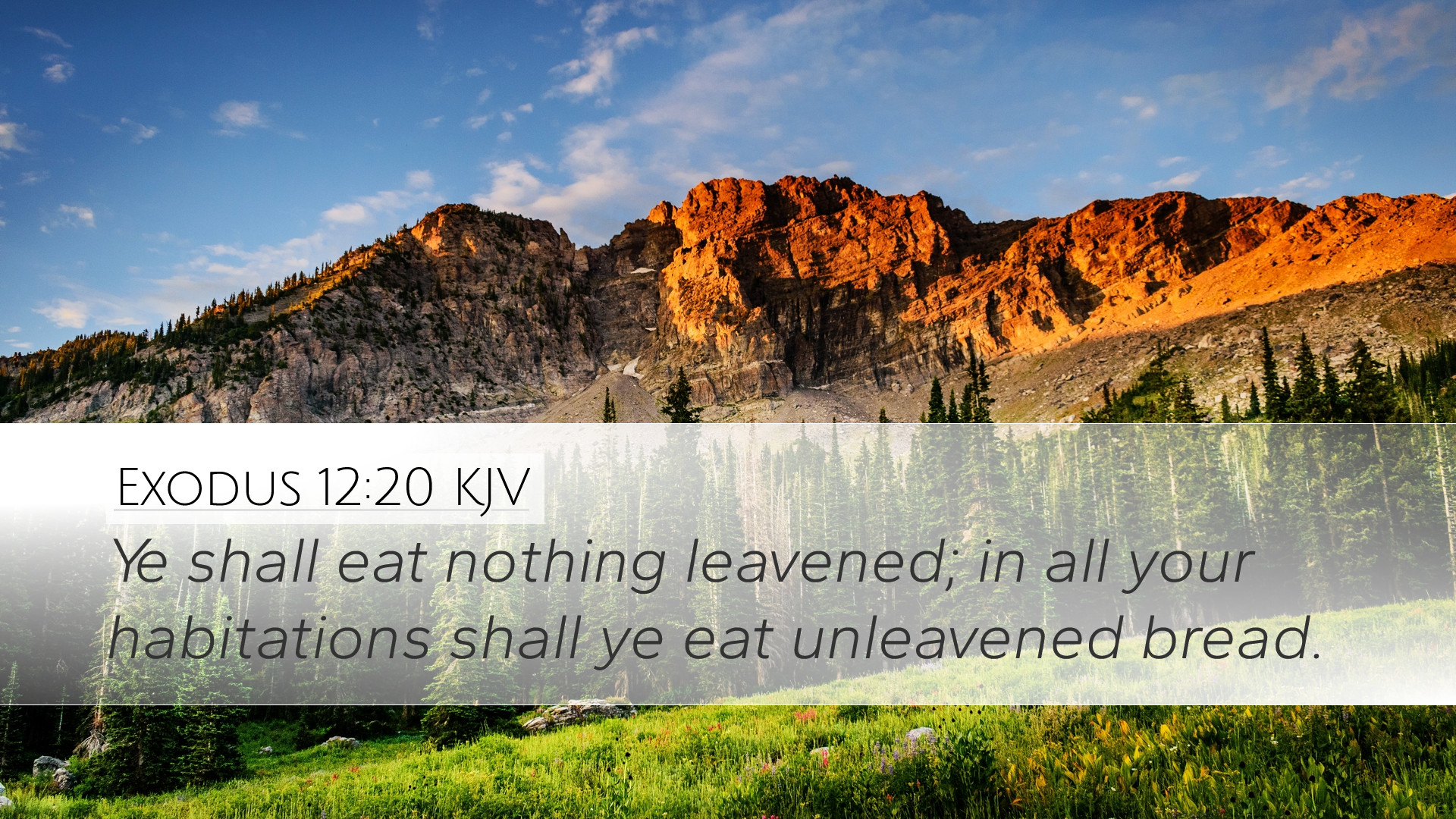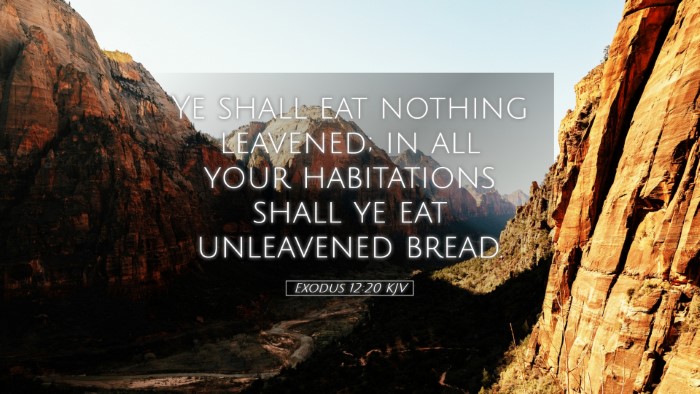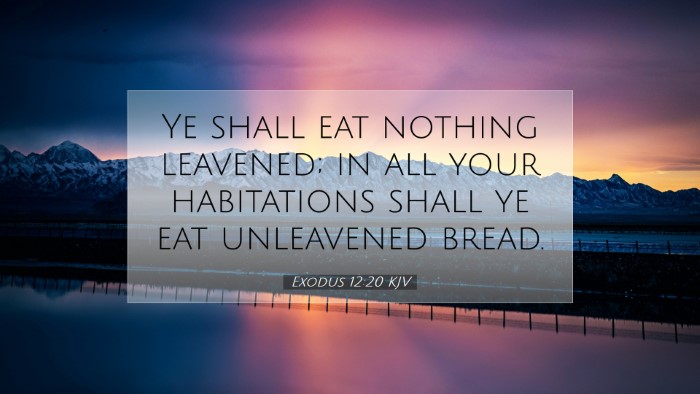Commentary on Exodus 12:20
Bible Verse: Exodus 12:20 - "You shall eat nothing leavened; in all your dwellings you shall eat unleavened bread."
Introduction
The command in Exodus 12:20 underscores the importance of purity and separation from sin as Israel prepares for redemption through the Passover. This directive not only reflects a physical act but also signifies a broader spiritual reality that resonates through biblical history.
Historical Context
The context of the Exodus narrative paints a vivid picture of Israel's liberation from Egyptian bondage. The Passover is instituted as a foundational moment primarily focused on deliverance and setting apart God's people. In this context, leaven becomes a symbol of corruption and sin.
Theological Insights
Leaven is often associated with sin in scripture. In this verse, the prohibition against leavened bread highlights the necessity for purity in the observance of God's commandments. The emphasis on unleavened bread serves multiple purposes:
- Symbol of Purity: Unleavened bread symbolizes holiness, as God desires a pure people.
- Preparedness: The urgent nature of the Exodus requires quick preparation, reflecting the need for readiness in spiritual matters.
- Foreshadowing Christ: Unleavened bread foreshadows the sinless body of Christ, the Lamb of God, who takes away the sin of the world.
Commentary from Matthew Henry
According to Matthew Henry, the command to eat unleavened bread was a vital part of the Passover observance, designed to remind Israel of their haste in leaving Egypt. He emphasizes that leaven signifies moral corruption and that this dietary restriction serves as a perpetual reminder for believers to cleanse themselves from all sin.
Henry notes that the act of refraining from leaven is not merely about dietary laws but rather an illustration of a believer's call to holiness. He draws a parallel between the physical removal of leaven from their homes and the spiritual eradication of sin from their lives, making it clear that God’s people are to be distinct and holy.
Commentary from Albert Barnes
Albert Barnes expounds on the significance of the term "all your dwellings." He interprets this as a directive that extends beyond the individual to encompass the community. This collective adherence to the command is critical, as it emphasizes that sin, like leaven, can spread and affect the whole community. Barnes draws attention to how this illustrates the communal aspect of holiness, where one person's actions can influence the faithfulness of the entire community.
Barnes elaborates on the spiritual implications, asserting that to eat unleavened bread is to partake in a life that is yielded to God's commandments, devoid of hypocrisy and sin. This aligns with the New Testament principle found in 1 Corinthians 5:6-8, where Paul encourages believers to "purge out the old leaven" to become a new lump.
Commentary from Adam Clarke
Adam Clarke highlights the dual significance of leaven in Scripture. Firstly, he notes that the absence of leaven in the Passover meal represents the quickness and urgency required during their exit from Egypt. This reflects on the spiritual preparedness required of the believer—it is a call to readiness in following God’s will without hesitation.
Clarke also emphasizes the moral implications of the command. He connects the prohibition of leaven to a broader theological narrative regarding sin, positing that believers are called to live lives free of moral corruption. He further asserts that the practice of remembering this command through annual observance reinforces a culture of sanctification that is vital for future generations.
Practical Applications
Exodus 12:20, while embedded in the historical and cultural context of the Israelites, offers timeless wisdom applicable to modern believers:
- Awareness of Sin: Believers are encouraged to examine their lives for any 'leaven'—areas of sin that may corrupt spiritual integrity.
- Community Accountability: The emphasis on collective observance calls Christians to foster accountability within their faith communities.
- Spiritual Readiness: The urgency of the command encourages believers to live in a state of preparedness, ever ready to follow God's directions.
- Symbol of Christ: Reflecting on the significance of unleavened bread fosters a deeper understanding of Christ’s sacrifice and His sinless nature.
Conclusion
In summary, Exodus 12:20 encapsulates profound spiritual truths rooted in the historical context of Israel's redemption. Through the lens of public domain commentaries, it becomes evident that the call to refrain from leaven transcends mere dietary law. It speaks to the heart of God's desire for His people to be holy and set apart, effectively urging each generation to remember the significance of purity in their relationship with the Divine.
This verse not only marks an event in the narrative of Exodus but also forms foundational principles for believers in their continuous journey of faith, underscoring the critical importance of living a life free from the leaven of sin.


